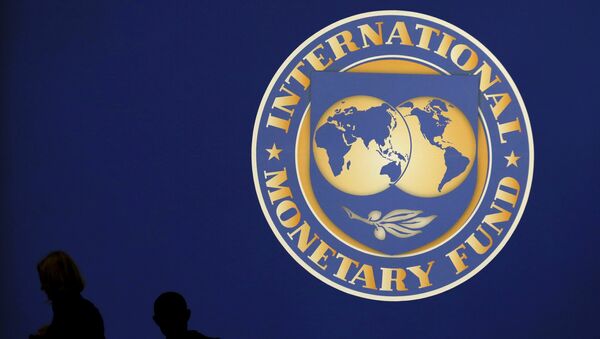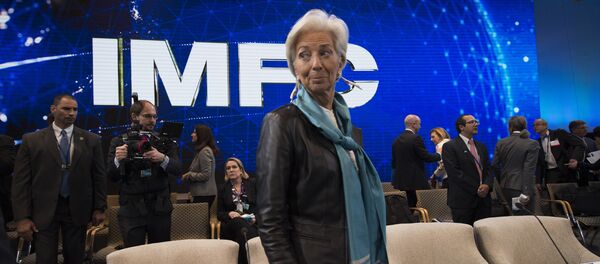Kristian Rouz – An increased fragmentation in international trade, the rise of economic protectionism in key world economies, accommodative tax policies, and deregulation might pose significant challenges to the global economy this year, International Monetary Fund (IMF) head Christine Lagarde said in a speech to the World Economic Forum (WEF) in Davos, Switzerland.
The ongoing revaluation of the dollar poses a disruptive risk to international trade, rendering commodities and primary-processing manufactured goods cheaper, and technology and sophisticated machinery dearer. This is putting many emerging markets in an increasingly disadvantageous position throughout the world.
This situation might entail a “race to the bottom” in the world economy, which might also include the competition in fiscal stimuli across the most prominent nations, and the already-wearing-down “war” of currency devaluations, fuelled by accommodative monetary policies in the Eurozone, Japan, and mainland China.
"If the disruptions we are expecting for 2017 as a result of what happened in 2016 prove to be all negative and we are to end up in a race to the bottom on the tax front, on the trade front, on the financial regulation front, then that for me would be a really big 'black swan', that would have devastating effects," the IMF’s Lagarde said.
The global economy, however, looks solid, and the overall situation is gradually improving as the consequences of the disastrous global financial meltdown of 2008 gradually fade, the IMF observed. Still, the economic policies of the Trump administration, which are seen as rather benefitting the US economy and labour market, might cause harm to some of the export-dependent emerging markets.
"The US economy is likely to accelerate growth this year and next year, and price inflation may ris some. All of (these) may make interest rates rise and the dollar might also appreciate," Haruhiko Kuroda, chair of the Bank of Japan (BoJ) said.
Meanwhile, the IMF still revised its outlook for the US economic expansion up to 2.3 percent for this year compared to earlier projections of 2.2 percent made in October 2016. In 2018, the US economy will expand by 2.5 percent compared to the previously expected 2.1 percent, the IMF said.
That means US GDP will mildly accelerate under the Trump administration, while, otherwise, the current slowdown would continue in the medium-term.
Trump is adamant about allocating massive amounts of federal money to build or renovate US roads, bridges, airports, pipelines, and other infrastructure, such as, for example, the water system in Flint, Michigan, where local residents have no access to drinking water. This spending spree is poised to boost US employment, greatly benefit the US construction and manufacturing sectors, as well as reflect positively on overall growth.
As for the rest of the world, the strong dollar era will continue weighing on emerging markets, even though the Trump administration will likely be more interested in devaluating the national currency in order to support domestic industries. This might result in a clash of interest between the White House and the Federal Reserve, with unknown consequences.
The IMF reported that global economic growth will accelerate to 3.4 percent in 2017, and to 3.6 in 2018 compared to 3.1 percent last year, led by the robust expansion in select emerging markets and the US.



